What happened on VE Day?
8 May 1945 – Victory in Europe Day (VE DAY) – is a day etched in the memory of everyone who witnessed it. After nearly six years of war Germany officially surrendered on 7 May 1945 and the conflict was finally over.
The unconditional surrender came after Adolf Hitler took his own life on 30 April as the Allies surrounded Berlin, and was authorised by his successor Grand Admiral Karl Dönitz.
News that the war in Europe had ended did not come as a surprise and had been anticipated back in Britain for some time as the Allies advanced on Germany.
How did people celebrate VE Day?
Long awaited news
The announcement that the war was over was broadcast across the radio to the British people on the evening of 7 May with a news flash announcing that VE Day would be a national holiday and would take place the next day.
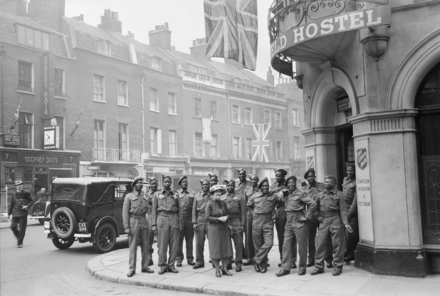
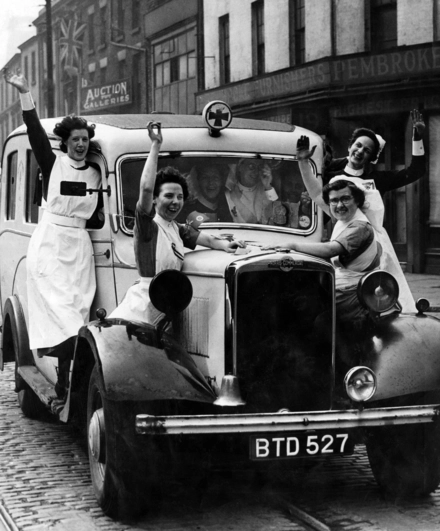
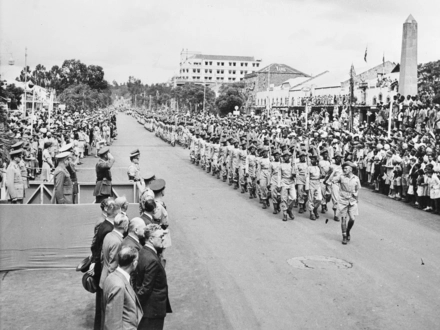
Across the western world, millions rejoiced, relieved that years of conflict and incredible hardship were finally coming to an end.
Up and down the country millions of people took to the streets as communities came together to celebrate the end of the European conflict with street parties, dancing and singing.
Mass crowds gathered in Trafalgar Square and up the Mall to Buckingham Palace, where King George the VI, Queen Elizabeth, Princess Elizabeth and Princess Margaret were joined by Prime Minister Winston Churchill on the balcony of the palace before the jubilant crowds.
Princess Elizabeth and her sister also later secretly joined the celebrations in the crowds outside the palace, with Princess Elizabeth, the future Queen, describing it as "one of the most memorable nights of my life".
Image credit: © Getty Images and Imperial War Museum.
Mixed emotions
But despite the joy and celebration, it was a day of mixed emotions for some who mourned loved ones lost during the war, and for those who worried about friends and relatives still serving overseas.
Why was VE Day not the end of WW2?
The conflict was over in Europe, but the war continued to wage in the Far East and Pacific, with many troops redeployed to fight in the east instead of coming home. The end of the war in Japan came a few months later in August after atomic bombs were dropped on Hiroshima and Nagasaki.
The impact of the Second World War endured long after VE Day. Millions of lives had been lost, homes and cities were destroyed and needed to be rebuilt, and people all over Europe had been displaced by the conflict.
But after years of uncertainty and living in fear, it was one day that everyone came together to celebrate the start of new beginnings.
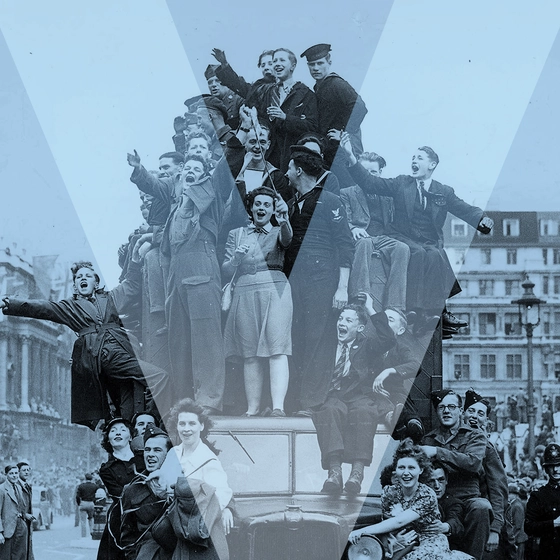
VE Day - 80 Years On
2025 marks 80 years since the end of the Second World War, with Victory in Europe (VE) Day on 8 May 1945 and Victory over Japan (VJ) Day on 15 August 1945.
Find out more about our VE Day commemorative events in 2025 here.




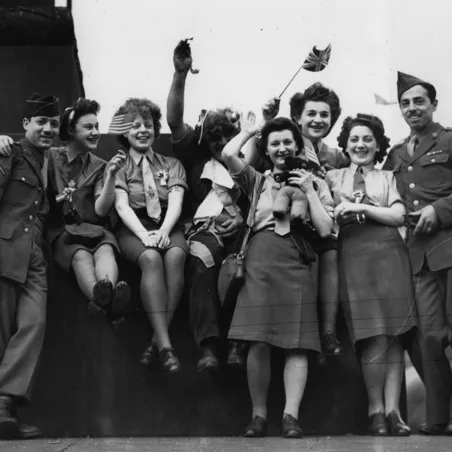
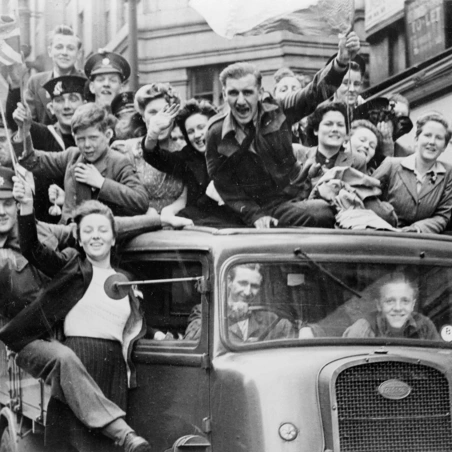
.jpg?sfvrsn=e0967d6a_2&method=CropCropArguments&width=452&height=452&Signature=FE7710B6D950C691777CE55003B2C491AB5CBD47)
.jpg?sfvrsn=f29cb141_6&method=CropCropArguments&width=452&height=452&Signature=B26641313DB7254B1153CA11344D274532223943)